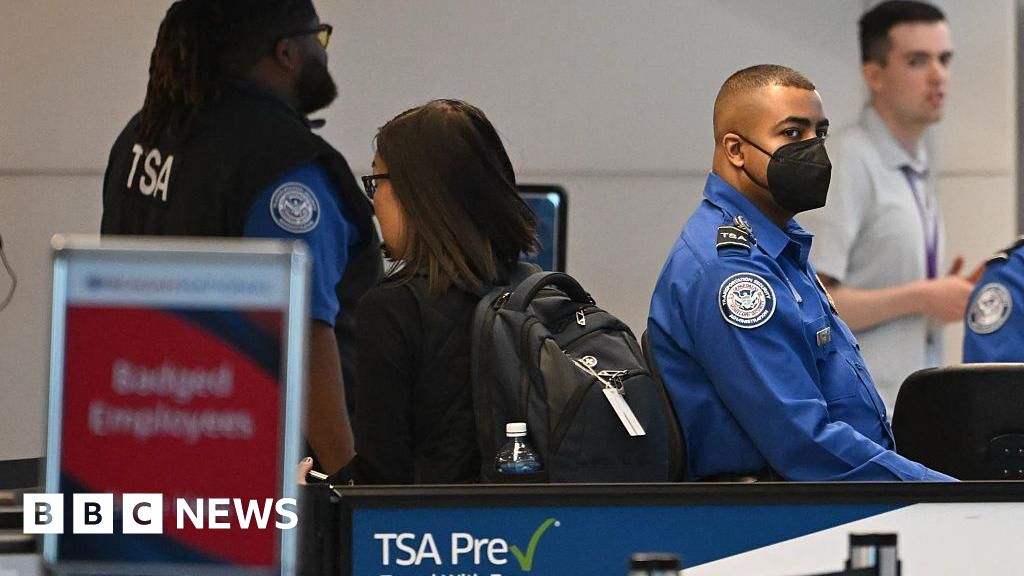The $10,000 Question: Unpacking the TSA Shutdown Bonus Controversy
In the unpredictable arena of federal employment and government fiscal policy, few announcements capture public attention as swiftly or as fiercely as a financial bonus, particularly when it follows a period of widespread hardship. The recent revelation that certain Transportation Security Administration (TSA) agents, pivotal figures on the front lines of national security, would receive a substantial $10,000 bonus for their service during the grueling 43-day government shutdown has ignited a firestorm of debate. Announced by Homeland Security Secretary Kristi Noem, this decision, ostensibly a recognition of ‘exemplary service,’ has become a potent symbol of the deeper, often contentious, issues surrounding federal worker compensation, crisis management, and the ethical allocation of taxpayer funds.
A Nation Held Hostage: The 43-Day Ordeal
The backdrop to this dramatic announcement is the longest government shutdown in U.S. history, a political stalemate that saw hundreds of thousands of federal employees furloughed without pay, and many more, designated as ‘essential,’ compelled to work without immediate compensation. For nearly six weeks, the federal workforce navigated immense personal and financial uncertainty. Mortgage payments loomed, grocery bills mounted, and the psychological toll was profound. While the nation watched, politicians in Washington grappled with budgetary impasses, leaving dedicated public servants to bear the brunt of their disagreements.
“The shutdown was a stark reminder of the fragile nature of federal employment and the critical, often unappreciated, role these individuals play in our daily lives. Many worked tirelessly, fueled by a sense of duty, even as their own families faced financial precarity.” – A veteran federal employee advocate.
TSA agents were squarely in the category of essential personnel. Day in and day out, they reported to work at airports nationwide, ensuring the safety of millions of travelers. They did so without knowing when their next paycheck would arrive, maintaining a semblance of normalcy in critical infrastructure while their personal finances teetered on the brink. Their dedication was unwavering, often under immense public scrutiny and pressure.
The Announcement That Shocked the System
The news of the $10,000 bonuses, delivered by Homeland Security Secretary Kristi Noem, landed with a resounding thud in an already volatile post-shutdown landscape. While intended as a gesture of gratitude and recognition, it immediately cleaved public opinion and stirred up a hornets’ nest of questions:
- Who qualifies for this ‘exemplary service’ bonus?
- What specific metrics or criteria were used to define and evaluate ‘exemplary service’ during an unprecedented crisis?
- Where does the funding for these substantial bonuses originate?
- What about the hundreds of thousands of other essential workers, from air traffic controllers to Border Patrol agents, who also worked without pay during the same period?
The Department of Homeland Security’s confirmation of the bonuses, citing a need to acknowledge the extraordinary efforts, offered little in the way of concrete details regarding the selection process or the full scope of recipients. This ambiguity only fueled the fire, leading to accusations of favoritism and a lack of transparency.
The Ethical Minefield: Fairness, Equity, and Precedent
The core of the controversy lies in the fundamental principles of fairness and equity. While few would argue against recognizing the sacrifices made by federal employees, the selective nature of the bonus program raises serious ethical concerns. Many argue that singling out one group, however deserving, inherently devalues the contributions of others who endured identical hardships.
“It’s a slap in the face to every other federal worker who showed up, did their job, and faced the same financial uncertainty. Where’s their bonus? This creates a dangerous precedent.” – A representative from a federal employee union.
The potential for creating a tiered system of recognition, where some essential workers are deemed ‘more exemplary’ than others, could have long-term detrimental effects on morale across the entire federal workforce. It risks fostering resentment and undermining the collective spirit often required during national crises. Moreover, the decision establishes a complex precedent for future government shutdowns. Will such bonuses become an expectation? How will their allocation be justified in subsequent fiscal standoffs? The implications extend far beyond the immediate financial payout, touching upon the very fabric of federal employment policy.
The Road Ahead: Reforming Federal Compensation in an Unstable Era
The TSA bonus saga underscores a critical need for a comprehensive re-evaluation of how the U.S. government compensates and supports its workforce, particularly during periods of legislative paralysis. As government shutdowns become an increasingly common, albeit alarming, feature of the political landscape, piecemeal solutions and reactive bonus programs appear less like sustainable policies and more like temporary fixes that inadvertently create more problems than they solve.
Policy discussions must pivot towards:
- Establishing clear, transparent, and universally applicable guidelines for federal employee compensation during shutdowns.
- Exploring mechanisms for automatic, retroactive pay that are not contingent on post-crisis legislative action.
- Implementing robust support systems for federal employees facing financial duress.
- Developing a more holistic approach to recognizing and rewarding the dedication of all essential personnel, ensuring that gestures of gratitude are equitable and do not inadvertently create new divisions.
Ultimately, the $10,000 bonuses for TSA agents, while a welcome relief for their recipients, serve as a potent reminder of the structural vulnerabilities within federal employment and the urgent need for systemic reform. The real challenge lies not just in recognizing past service, but in forging a future where dedicated public servants are never again forced to choose between national duty and personal survival.


